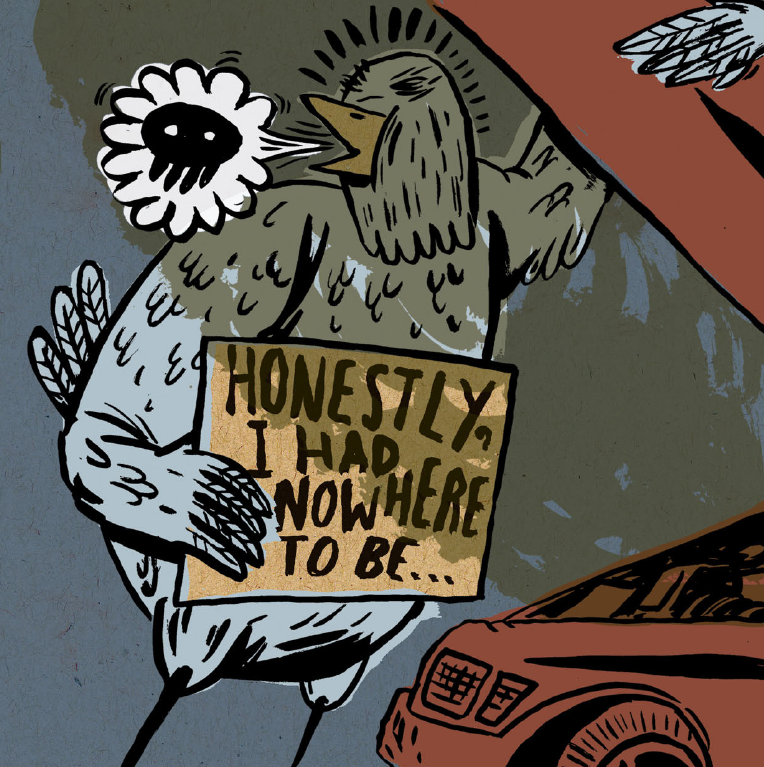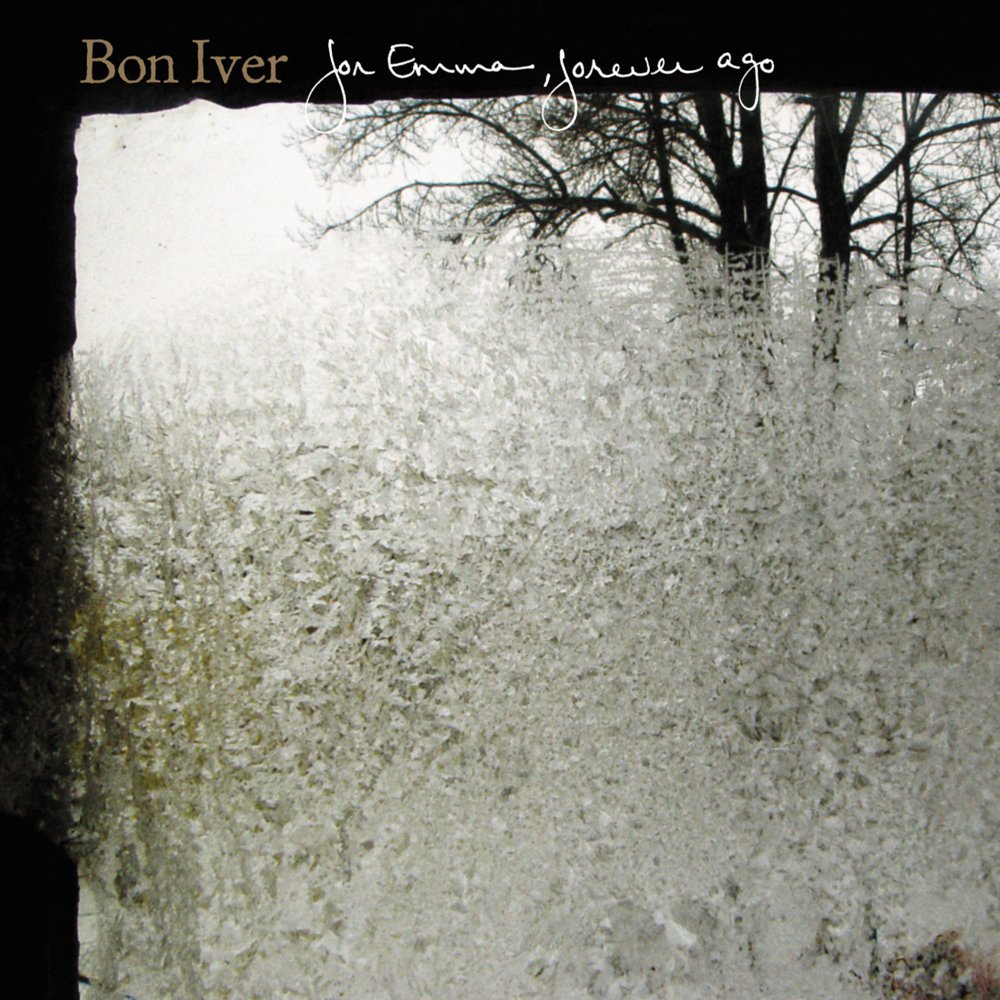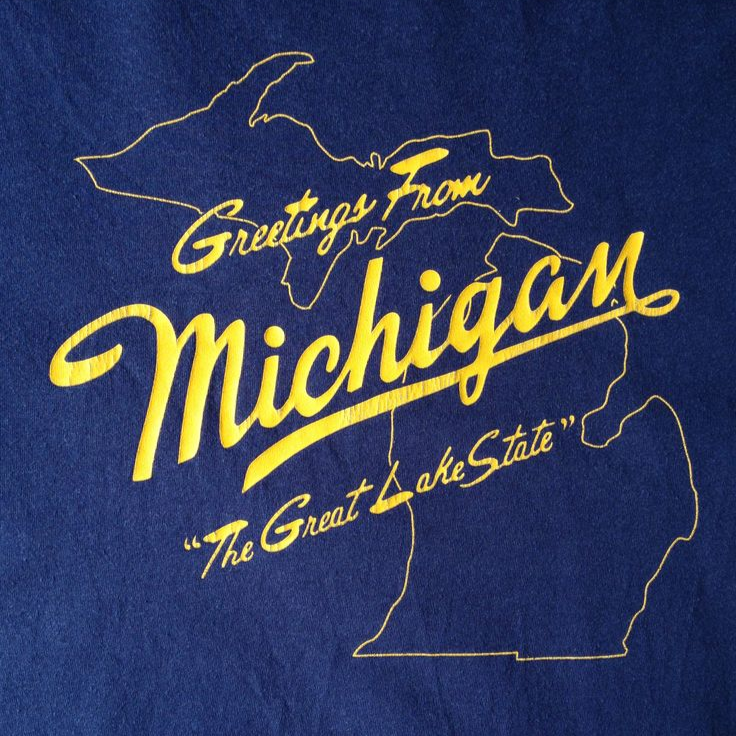I never thought I’d be “over” a genre within the space of a year. My obsessions tend to be longer-lasting, or at the very least, something that I can return to later even if it’s solely for nostalgic purposes. After “discovering” hip-hop in 2015 I quickly gravitated towards the “trap” subgenre whose outlandish figures like Young Thug and Future provided a much-needed break from the years of straight-laced and hyper-earnest music I’d been listening to most of college.
In addition to trap’s personable artists, the subgenre has managed to become one of the most popular and dominant sounds over the past several years. This combination made the scene feel communal and accessible as it grew to become an undeniable a part of the cultural zeitgeist. In fact, hip-hop is part of the cultural landscape now more than ever as artists are propelled to success by internetmemes which has led to a “look at me” mentality.
In 2016 a distinct new class of rapper began to emerge who utilized the path that had been paved by their trap forefathers to carve out their own niche and fortify themselves as the “next generation” of hip-hop. This group of (then) up-and-comers included people like Lil Yachty, Desiigner, and 21 Savage who quickly earned the derogatory label of “mumble rap,” a name inspired by the MC’s apparent lack of technical proficiency on the mic. These rappers took cues from people like Young Thug and Future (who are also often lumped into this group) but remain distinct for a few reasons. One: almost all of these artists blew up while still in their teens. Two: almost all of these artists used SoundCloud as a platform in their rise to prominence (paving the way for future artists). Three: Many of the most popular “mumble rappers” also happened to be members of the XXL 2016 Freshman Class.
This inclusion in XXL is the most important commonality to note because it elevated the genre instantly and placed these artists squarely in the spotlight. As these rappers gained popularity and publicity over the summer of 2016 many people criticized the freshmen class for their evident lack of technical skill. It quickly ballooned to a genre-wide discussion about what these rappers “brought to the table” if they were eschewing the things that were typically used as barometers of quality within the genre.
I’ve already put my flag in the ground on the topics of lyricism and proficiency in hip-hop in this post from last year on the importance (or lack thereof) of lyrics. In retrospect, comparing these rappers to groups like Sigur Ros may have been a step too far, but I still stand by the overall sentiment of the post.
Now, I hate to sound nostalgic for something that’s only a year old, much less hoist up these artists who I ultimately think are just okay… but these mumble rap artists were significantly better than what we see coming out of the scene a year later. Thanks to the 2016 Freshman Class, hip-hop became an ongoing debate of “style versus substance,” and we’re only now seeing the implications of this shift a year after the emergence of mumble rap with the birth of a brand new scene. But before I get into that, let’s take a look at two specific artists from the mumble rap movement to help us make a direct comparison.
Two Sides of the Same Sound
Lil Uzi Vert is a Philadelphia-based rapper who first made waves in 2015 with his third mixtape Luv is Rage. In 2016 he rose to prominence thanks to his fourth mixtape Lil Uzi Vert vs. the World which birthed two singles, ended up going gold, and solidified him a place on the 2016 XXL freshman list. In 2017 he’s reached unprecedented heights thanks to a (bad) verse on Migos’ quadruple platinum “Bad and Boujee” which paved the way for his own (much better) track, the monumental “XO Tour Llif3.” Tour Lif3 was originally uploaded to Soundcloud as a throwaway track and has since become a breakout phenomenon going x3 Platinum in 6 months, proving both the popularity of Uzi and cementing the platform as a viable test for mainstream hits.
Moving onto another “Lil” rapper from the same scene: Lil Yachty is an Atlanta-based artist who originally broke through in 2015 with what everyone presumed was a one-off viral hit “One Night.” Within a year his next hit “Minnesota” was being played on Drake’s radio show and he caught fire. This platform brought Yachty a newfound audience which elevated his just-released Lil Boat mixtape and propelled him to the forefront of the hip-hop stratosphere.
I chose to highlight these two because they became symbols of the mumble rap genre within the space of weeks. And while they’re often lumped together, they oddly represent two opposing sides of the same sound. So why these two guys? Aside from their inclusion in the 2016 Freshman Class, they both blew up at the same time, dropped high-profile mixtapes within a month of each other, and use many of the same tropes within their music. I also believe one of the more silly reasons these two were lumped together was because of their hair.
It sounds stupid, but Lil Yachty’s bright red braids and Uzi’sever-changingdreads became emblematic symbols of the mumble rap movement. Most of the 2016 class had a unique look, but these two stuck out like sore thumbs with their distinct and brightly-colored mops. What’s more, these two rappers specifically started challenging hip-hop norms by disregarding classics and even going as far to state that they are “not rappers” but instead preferring to be labeled as “rockstars.” For better or worse, they became symbols of the new school: two figures that stood in direct opposition to the traditions of the genre. It’s easy to see why they sparked debates, spurred controversy, and turned off old heads the world over in 2016.
There was a clear line being drawn in the sand over the 2016 Freshman. One side saw this crop of artists as energetic, hair-dyed teenagers with little artistic substance beyond the beats they were rapping over. Meanwhile, the other side saw this scene for the fun, carefree, and easily-digestible entertainment that it was intended as.
If it wasn’t apparent by now, I’m fans of these artists, and I resented the fact that these 18-year-olds were being cited as the “downfall of hip-hop” as if their very existence was an offense to the genre’s history. I’ll admit that it took me some time to come around to each artist, but Uzi and Yachty’s 2016 tapes quickly became some of my favorites that year. With upbeat, colorful, summery songs, these artists were just teenagers, but there is a time and place for the type of music they were making.
I was decidedly on the side of these artists. I didn’t see these guys as the "end of hip-hop” that so many classic rap fans were quick to decry them as. I’ve already linked this previous post on why a lack of substantive lyrics doesn’t equate to lack of substantive music, but The Needle Drop’s Anthony Fantano explains this subgenre’s appeal well in this video where he draws a comparison to this new sound and the punk mentality of the 70’s. These artists became unwitting figureheads for a movement that they didn’t necessarily even create, but their music doesn’t invalidate traditional hip-hop or threaten other artist’s artistic output.
At the end of the day, Yachty and Uzi are two musicians are working towards very different visions with Uzi representing more of a moody, rock-inspired crooning emo trapper and Yachty being more of an upbeat goofball “bubblegum trap” artist. They got judged unfairly, lumped into the same group, and became polarizing figures within the matter of a few months. But on a more positive note, they engaged and energized the younger generation, which led to hip-hop becoming the most popular genre in the US for the first time ever. Their techniques and approaches to music also paved the way for a new type of rapper who took their styles and carried them to their logical extremes. That brings us to 2017.
Mumbles Begat Soundcloud
Compared to this innovative wave of energy that we saw in hip-hop last year, 2017 has felt like a step backward in many ways. We’ve had fewer projects from bigger names, and less “movement” in the genre as a whole. I’m also willing to admit this perceived drop-off in quality could be chalked up to personal bias because, while I feel less enthused by the genre, hip-hop as a whole has still experienced a major influx of activity this year. The problem is its momentum that’s hyper-specified and that I feel absolutely no connection to.
I’ve never wanted to be the old guy who doesn’t “get it” yet, within the space of a year I feel like I’ve already crossed over into old man territory. A year after the rise of the “mumble rapper” we’re now witnessing the birth of a new class of artists dubbed the “Soundcloud Rapper.”
One major artist to blow up from this scene is XXXTentacion. I first became aware of his existence in early 2017 as he was gaining rapid popularity online while behind bars after being arrested for assault at 18 (you read that right). Between Lil Wayne’s infamous stay in prison to Max B’s recent memed-out sentence, rappers are no stranger to trouble with the law. XXX was let out on false charges (which I don’t buy) but I’m willing to (again) admit personal bias because I find the assault of a woman more heinous than simple gun charges. This controversy was a bad way to first hear about an artist and left me with a negative first impression of both the artist and the “scene.”
Around this same time, a Georgian rapper named Playboi Carti released his eponymous debut to surprisingly-high reviews. While not technically part of the same subgenre, Carti’s “Magnolia” blew up inexplicably, earning him a platinum and granting him access to high-profile collaborators the genre over. Carti’s music is similarly lacking in substance the same way that Uzi and Yachty are, so I can’t fault him for that. What I can fault him for is featuring on two and a halfseparatetracks this year in which his contribution is solely ad-lib-based. God knows I’m not against ad-libs, but it’s incredible to watch someone make a career being propped up by decent beats and more talented artists as they shout “what?” in between each of their bars. Oh and Carti was also taken into custody for assault in 2017 as well, only to be let off a month later.
Despite the public and controversial beatings, Both XXXTentacion and Playboi Carti have enjoyed success and made it onto the XXL Freshman 2017 list, ensuring them both a moderately-successful career. Comparing these two freshmen with the two I highlighted from the 2016 lineup provides a stark contrast between one group of mumbling trap artists and the second group of women-beating teenagers. Even setting aside the quality of their music, elevating and rewarding the abhorrent behavior of the latter two is undeniably a step backward for the genre. And as I’ve been editing this piece, TV’s Eric Andre has publicly spoken out against these artists citing a similar concern.
The Dregs
Now we move onto the two artists that inspired me to sit down to write this post in the first place: Lil Pump and SmokePurpp. These two Florida-born rappers are making music in the same style as XXXTentacion with distorted blown-out bassy instrumentals and loud aggressive chant-like vocals. Pump blew up several months ago on the back of the mindlessly-repetitive “D Rose.” The track, which finds Pump explaining why his expensive watches make him feel like Derrick Rose, was uploaded in late 2016 and has since garnered almost 30 million plays on Soundcloud. There’s honestly very little else to say about the song beyond that.
Critics and journalists took note of this subgenre’s meteoric rise in popularity and began writing Hunter S. Thompson-style gonzo journalism pieces about the scene including this one from Rolling Stone and this incredible write-up by The New York Times. I’d had these articles saved to my Pocket for later reading, but it wasn’t until I stumbled across a Noisey interview whose title was so great that I willingly dove into it.
The article in question “Reading This Interview with Lil Pump and Smokepurpp Will Make You Stupider” is a particularly glazed-over interview with the two Floridians in which the interviewer searches desperately for any semblance of a deeper purpose to these two artists. Their answers, relegated mostly to single-syllable words half-formed sentences, quickly revealed that there is no deeper level to Lil Pump and Smokepurpp. They’re not in search of anything, not inspired by anything, and their self-described “ih-norant” music is their artistic end-all be-all.
Now, look. I listen to a ton of stupid music, some of it just as “ignorant” and turnt up as this, but this new wave of music feels so baseless and devoid that I don’t see any silver lining to it. In fact, I write this primarily from a “worried mother” type perspective because these kids are fucking sixteen. Lil Pump (born August 17th, 2000) was admitted to the hospital following a lean scare just ten days before his birthday. XXXtentacion (born January 23rd, 1998) has (aside from the assault charges) put on a litany of violent concerts including fist fights, two-story jumps, and barricade collisions. I’m not the first to speak out against these artist’s carelessness, and I have a feeling I won’t be the last.
It’s music that trades out the bare minimum artistry that was there before for pure adrenaline and shock value. And again, maybe this isn’t “for me” and that’s why I don’t get it. If anything, these artists are simply a logical continuation of the mumble rap scene taking visual, musical, and artistic queues from the generation immediately before them. And Desiigner and Lil Uzi Vert have pulled equally-dangerous stunts at their shows… but it’s interesting to watch this progression take place so rapidly over the course of a calendar year.
And to circle away from the onstage antics and back to the music: I’m not saying Yachty’s music is high art. It’s still pretty dissonant, off-putting, and even bad on a technical level. But what Yachty traded those qualities out for is a unique sound and image based around himself. It may be discordant music, but it retains an undeniable sense of bright fun catchiness. Meanwhile, I feel like this new crop of artists retained that similar lack of technicality but traded out any sense of fun for pure adrenaline.
I don’t know where all this is headed. I do think it’s exciting that all this has happened within the space of a year, and it just goes to show how quickly the hip-hop genre is evolving and shifting. Maybe it’s just part of a bigger splintering and within a few years, we’ll have all these subgenres of hip-hop with dozens of artists occupying each well-defined niche with their own space carved out. I fully expect many of these guys to fall off and fade into obscurity soon (or at the very lease encounter more trouble with the law) but overall I think this energy bodes well for the genre. I just don’t want a teenager to die for it.
As long as young people continue to be inspired they’ll continue to innovate and push boundaries. I may not like the music, but I’m always in support of innovation. I sincerely hope I’m still on board for the next “wave” of explosive creativity in music, but I also know I will hit a point in the future where I just stop “getting it” and I accept that.
I don’t necessarily resent the scene, the music, or these artists. I think some of their extracurricular actions are deplorable and shouldn’t be celebrated, but that’s really about it. I see the appeal of the music, but I also know that it’s not for me. If anything, it’s exciting that real, young, independent musicians have the ability to build as much of a platform as more established artists, but sometimes that fan base is built on the back of shitty behavior that nobody should emulate.
It’s also interesting to watch the “gaze” of hip-hop move so quickly from one crop of artists to the next. It seems that nobody gets to spend much time on the throne, and now the artists that were exciting last year are practically legacy acts by the scene’s standards. It’s weird when the “primary focus” (or at least most explosive scene) of a genre is one that I fundamentally disagree with on nearly every level, but again, maybe I’m just turning into an old man.
I can’t think of any other way to end this besides words of hesitant encouragement. I want kids to keep innovating and scaring the adults (and 24-year-olds) by blazing their own trail. There’s something admirable about a sixteen-year-old throwing a song up on SoundCloud and becoming a certified star months later… but when it breeds violence and drug abuse I’m decidedly against it. It’s a fine line, and I respect everyone’s freedom/artistic choices/blah blah blah, I just wish everything was more positive.
So keep it up I guess. We’ll see where this scene goes. Who knows what the next year’s hot topic will be. For the time being, keep doing you. Just don’t do anything too stupid.












